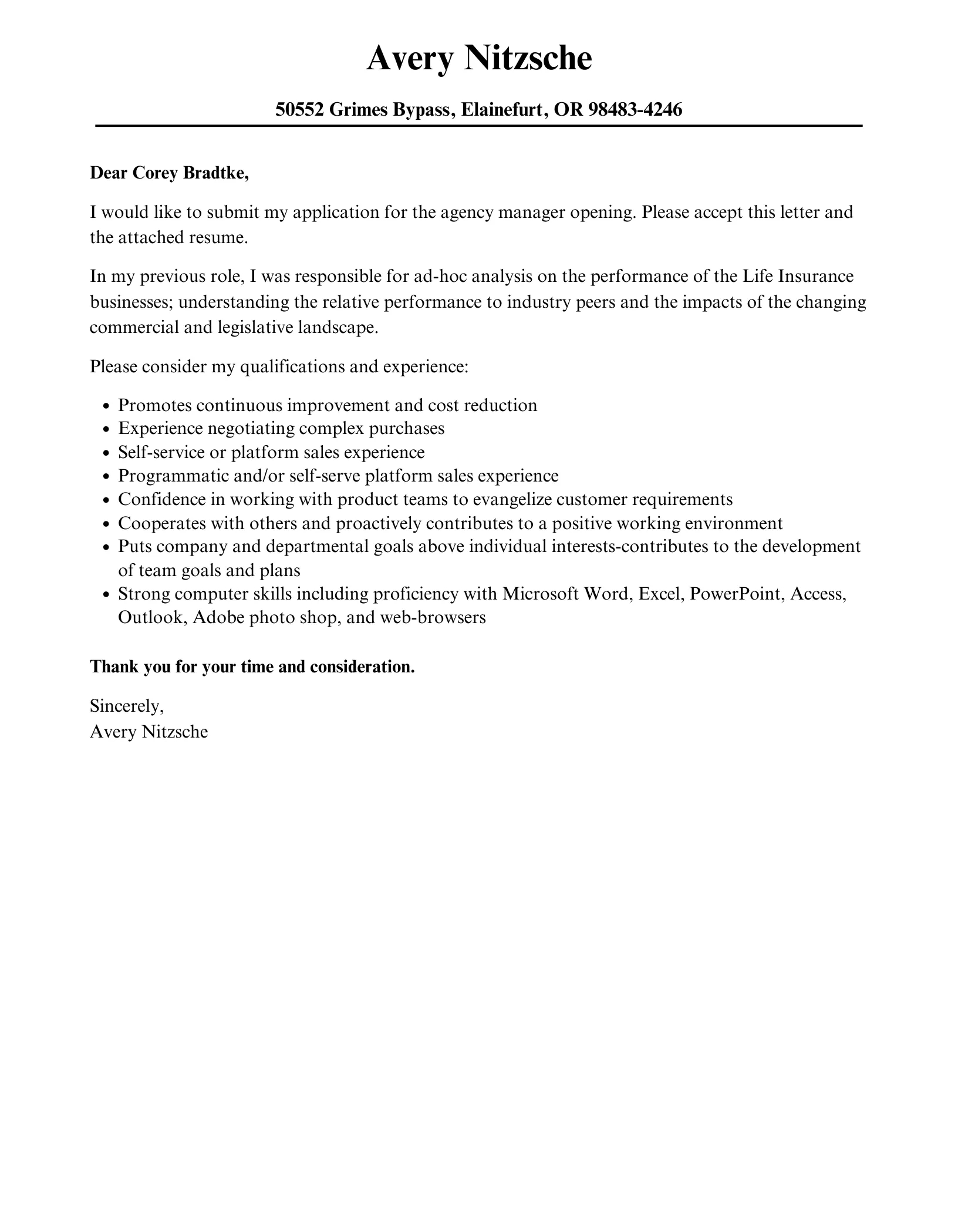Crafting the Perfect Cover Letter
A cover letter is your first impression, and in the competitive world of temp agencies, making it count is crucial. This document is your opportunity to showcase your personality, skills, and enthusiasm. Unlike a resume, which simply lists your experience, a cover letter tells your story, explaining why you are the ideal candidate for the opportunities a temp agency offers. With a well-crafted cover letter, you can stand out from other applicants, communicate your value proposition effectively, and significantly increase your chances of getting hired for temp positions. It’s about more than just listing skills; it’s about showing how those skills translate into tangible benefits for the employer.
Understanding the Temp Agency Landscape
Temp agencies operate differently than traditional employers. They are intermediaries, connecting job seekers with companies needing temporary staffing solutions. This means understanding their needs and how your skills align with their client’s requirements is key to success. Agencies often specialize in certain industries or roles, so tailoring your cover letter to match the agency’s focus increases your chances of being considered for suitable assignments.
Researching the Agency and Target Roles
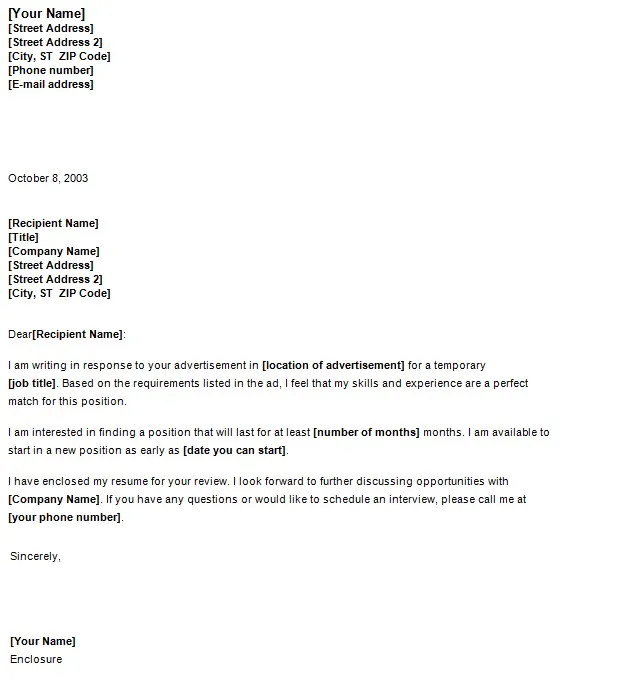
Before you start writing, research the temp agency. Look at their website, read reviews, and check their LinkedIn profile. Identify the types of roles they typically fill and the industries they serve. This will help you tailor your cover letter to match their needs. Next, analyze the job descriptions. What skills and experience are they looking for? What are the key responsibilities? Make a list of your relevant qualifications and how they align with what the agency and their clients want.
Highlighting Relevant Skills and Experience
This is where you sell yourself. Don’t just list your skills; explain how you’ve used them to achieve results. The best cover letters are specific, not generic. Provide concrete examples. If a job description calls for strong communication skills, describe a situation where you successfully communicated with a team. If it asks for organizational abilities, share an experience where you managed multiple projects effectively. These are your highlights. It’s more impressive to explain and show your skills instead of just listing them.
Identifying Transferable Skills
Transferable skills are those that can be applied to different roles and industries. Even if your experience isn’t directly related to the temp job, you may still have valuable skills. For example, skills learned in a customer service role can be applied to administrative positions, while project management skills are valuable across many industries. Identify these skills and explain how they can be used in the context of the roles you’re targeting.
Quantifying Achievements
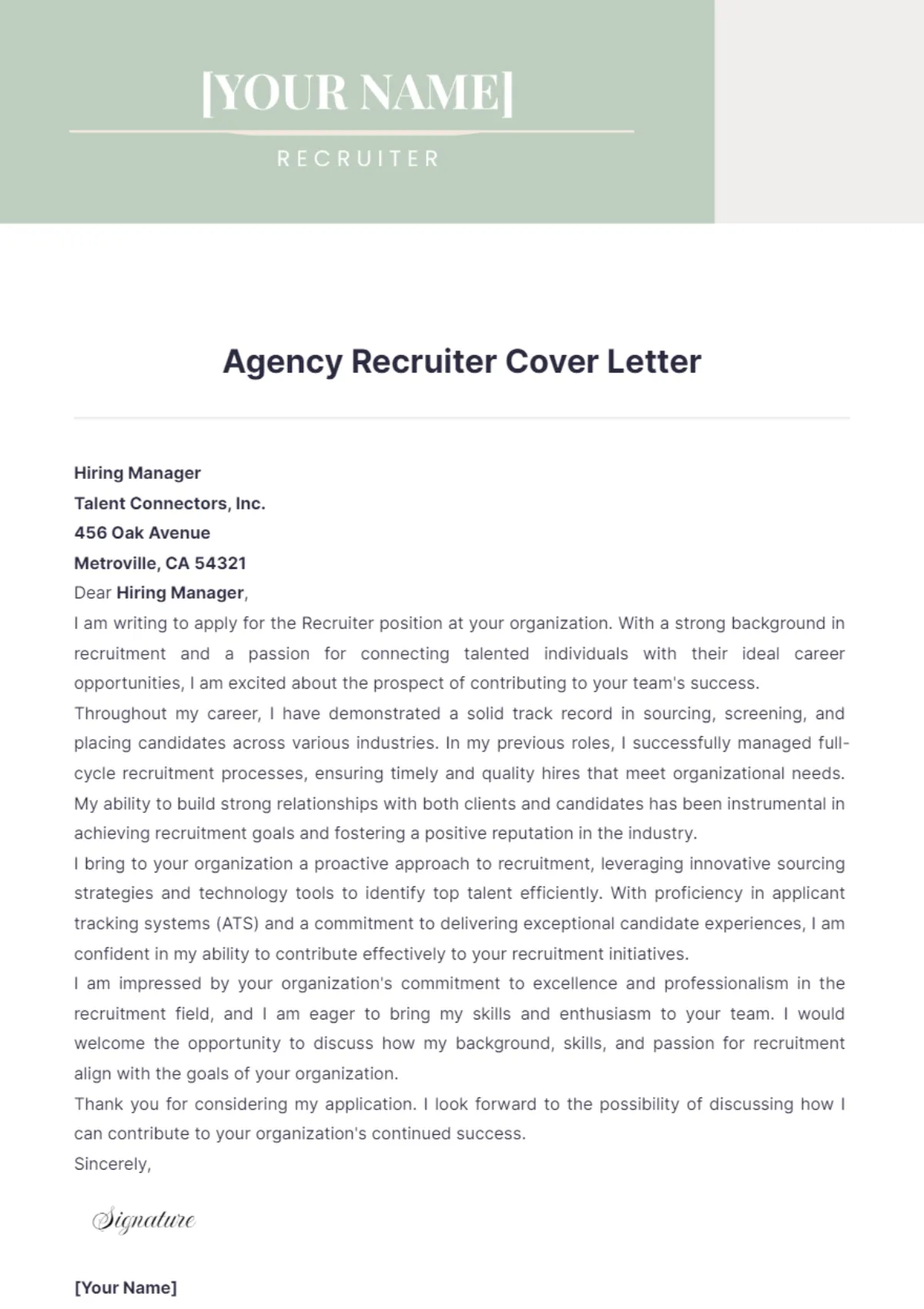
Whenever possible, quantify your accomplishments. Numbers make your achievements more compelling and memorable. For example, instead of saying “Improved customer satisfaction,” say “Improved customer satisfaction by 15% through proactive problem-solving.” Instead of writing “Managed projects,” write “Managed 5 projects simultaneously, delivering all on time and under budget.” Quantifiable data offers the agency a clear understanding of your value and contributions, making your cover letter stand out.
Structuring Your Cover Letter for Impact
A well-structured cover letter is easy to read and highlights your key qualifications. The structure of your cover letter influences the way the recruiter perceives your skills and ability to communicate. Every part of your cover letter should work to convince the recruiter that you are the perfect candidate. The following structure will help you accomplish this.
The Header and Contact Information
Your header should include your name, contact information (phone number, email address, and possibly LinkedIn profile URL), and the date. Ensure the header is clean, professional, and easy to read. If you know the hiring manager’s name, include their name and title, along with the company’s address. This level of detail demonstrates that you have done your homework and pay attention to detail.
The Opening Paragraph Grabbing Attention
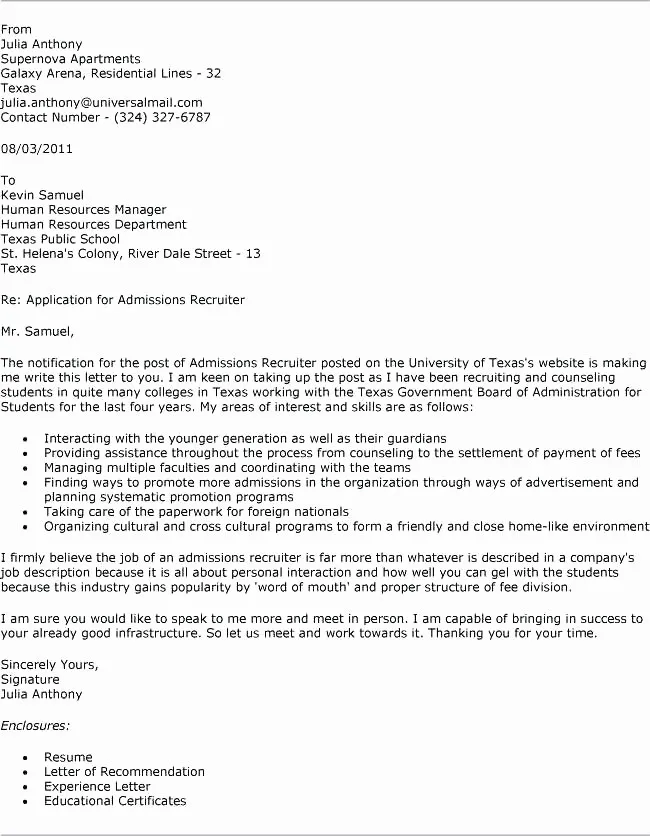
The opening paragraph is your first opportunity to capture the reader’s attention. Start with a strong statement that indicates your interest and the position you’re applying for. If possible, mention where you saw the job posting, or how you were referred to the agency. Briefly state why you are interested in the opportunity and highlight one or two key skills or experiences that align with the role. This sets the tone and gives the recruiter an immediate reason to keep reading.
The Body Paragraphs Showcasing Value
The body paragraphs are where you provide details. Use these to showcase your skills and experiences. Focus on demonstrating how your qualifications align with the specific requirements of the job. Use the STAR method (Situation, Task, Action, Result) to describe your accomplishments. In each paragraph, address a specific skill or experience, providing concrete examples of how you’ve used it successfully in previous roles. This section should be concise, focused, and tailored to the job requirements.
The Closing Paragraph and Call to Action
In the closing paragraph, reiterate your interest and enthusiasm for the opportunity. Summarize your key qualifications and restate why you are a good fit for the role. End with a clear call to action, such as requesting an interview or stating your availability. Thank the reader for their time and consideration. A strong closing leaves a lasting impression and encourages the reader to take the next step.
Tailoring Your Cover Letter for Each Application
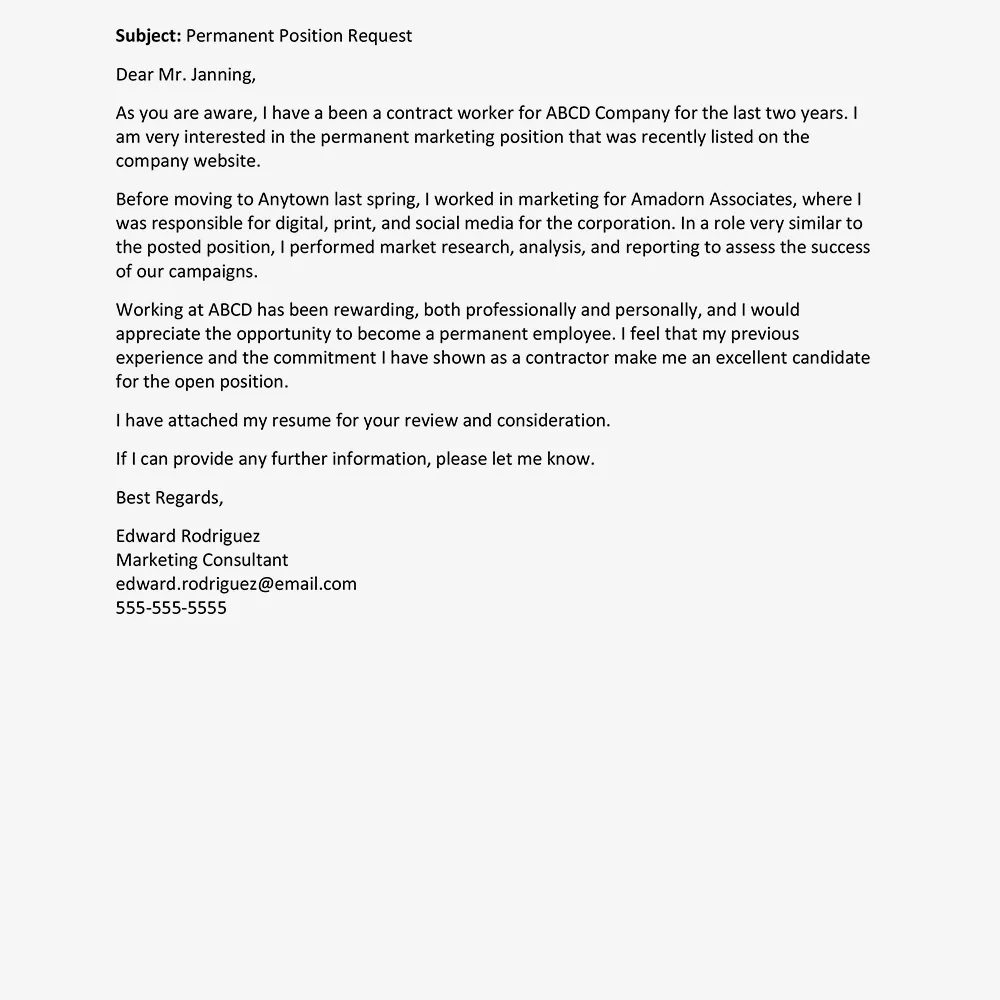
Generic cover letters rarely impress. Tailoring your cover letter to each job application is crucial. This demonstrates that you understand the specific requirements of the role and are genuinely interested in the opportunity. This requires time and effort, but the investment pays off in increased interview opportunities and job offers. Each cover letter you send should be uniquely crafted.
Customizing for Specific Job Descriptions
Carefully analyze the job description and identify the key skills and experiences that the employer is seeking. Use the same keywords and phrases from the job description in your cover letter, but don’t simply copy and paste. Instead, incorporate these keywords naturally within the context of your own experiences and achievements. This helps your cover letter get noticed by applicant tracking systems (ATS) and shows the recruiter that you have the specific qualifications they are looking for.
Addressing the Hiring Manager by Name
Whenever possible, address your cover letter to the hiring manager by name. This shows that you have taken the time to research the agency and the role. If you can’t find the hiring manager’s name, it’s acceptable to use a generic salutation like “Dear Hiring Manager.” However, try to find the name. It can be found by looking at the agency’s website or LinkedIn. This small detail shows that you are paying attention to the details.
Showcasing Your Enthusiasm
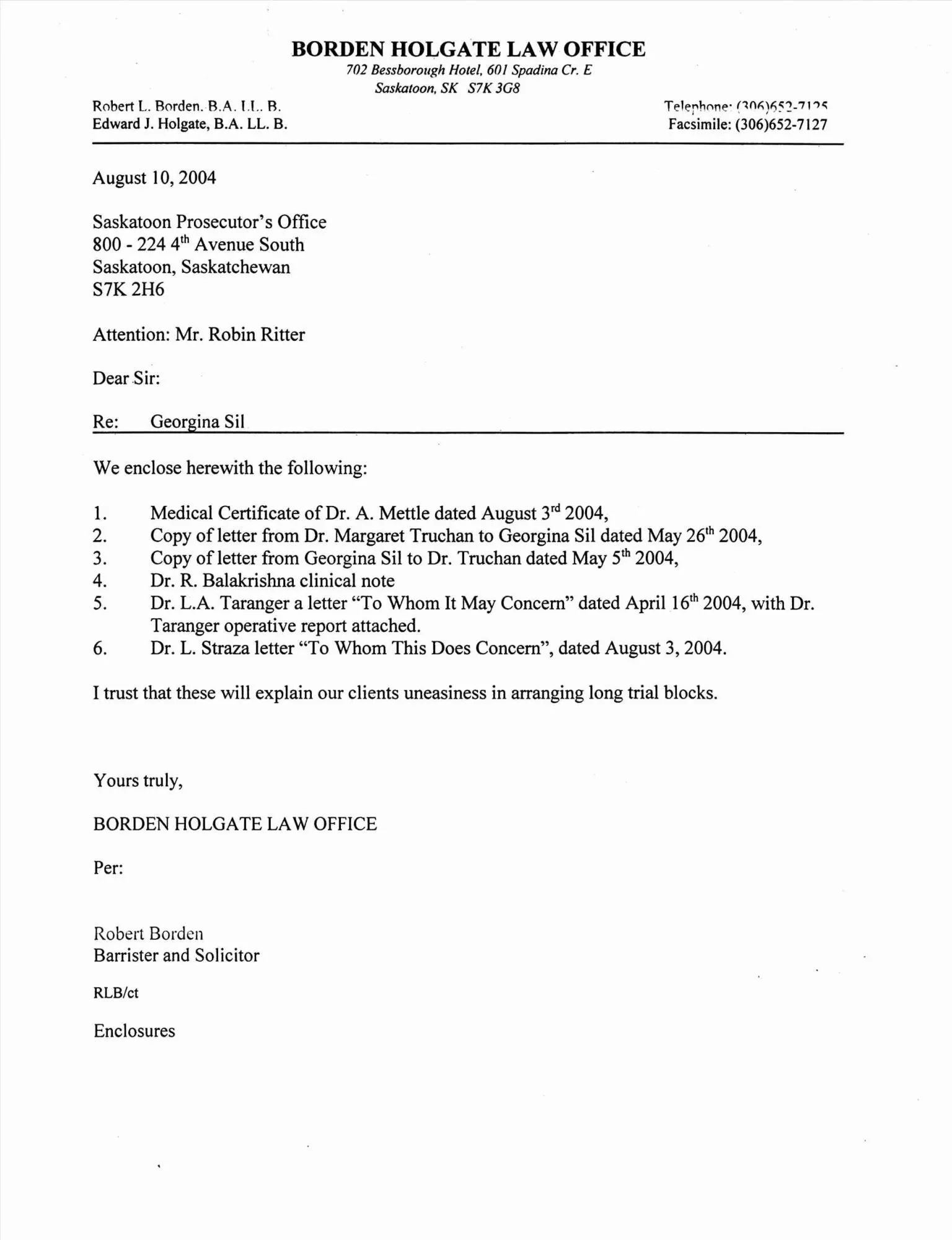
Expressing enthusiasm is critical. Let your passion and excitement for the opportunity shine through. Show why you’re genuinely interested in the role and the agency. Be positive, enthusiastic, and professional in your tone. Describe how you would contribute to the company, and why you are the right fit for the opportunity. This will make your cover letter more engaging and memorable.
Proofreading and Formatting for Professionalism
A well-formatted and error-free cover letter is essential for making a positive impression. Proofreading for errors and ensuring your cover letter is easy to read are extremely important. Many recruiters filter out applications with a lot of errors, so make sure you take the time to proofread your work.
Common Mistakes to Avoid
Avoid common mistakes that can undermine your application. Don’t use generic cover letters. Be specific. Don’t be too casual. Use professional language. Don’t ramble or make your cover letter too long. Keep it concise and to the point. Don’t focus only on what you want; concentrate on how you can benefit the employer. Be careful about spelling errors or grammatical mistakes; proofread your letter carefully. Never lie or exaggerate; always be honest and accurate in your representation.
Proofreading for Accuracy and Clarity
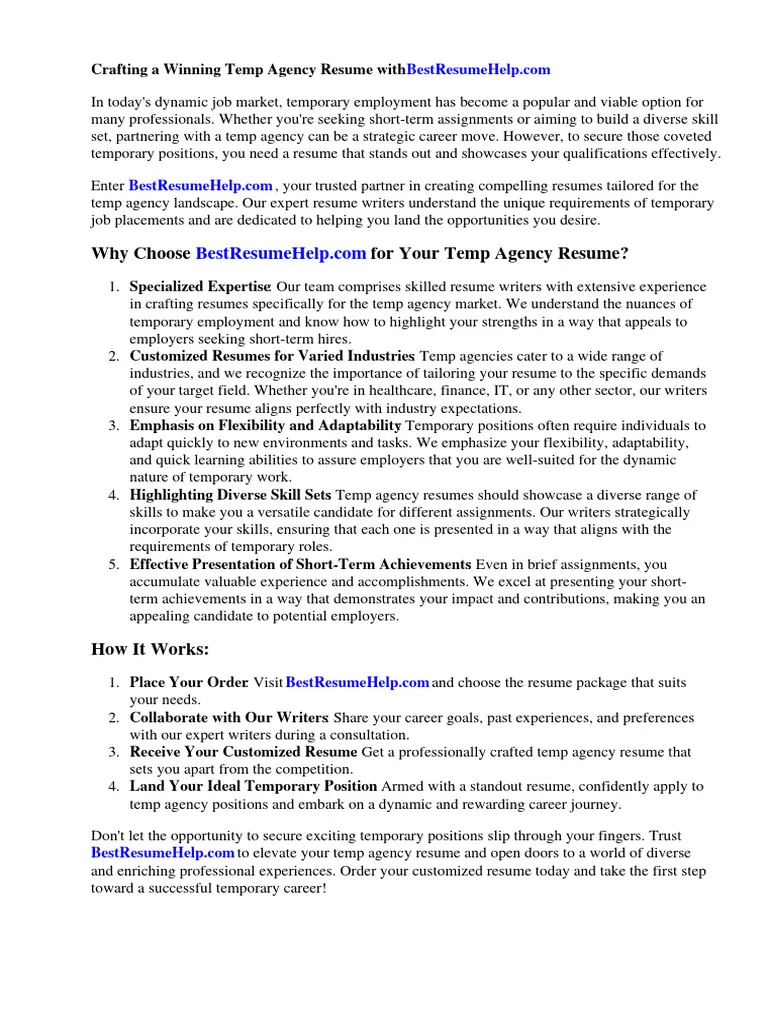
Always proofread your cover letter carefully for any errors in grammar, spelling, and punctuation. Errors can create a negative impression and make it difficult for the reader to understand your message. Read your cover letter out loud. Have a friend or family member proofread it. Using grammar-checking software can also help catch mistakes. Ensure your sentences are clear, concise, and easy to understand. The content and clarity of your letter must show your attention to detail.
Formatting Tips for Readability
Formatting affects how easy your cover letter is to read. Use a professional font such as Times New Roman, Arial, or Calibri in a 10-12 point size. Use clear and concise language, and avoid jargon or overly complex sentences. Use bullet points to highlight key skills or achievements. Use white space effectively to break up text and make the cover letter visually appealing. Keep your cover letter to one page in length, which is a standard professional practice.
In conclusion, a well-crafted cover letter is a vital tool for landing temp jobs. By following these secrets—researching the agency, highlighting your skills, tailoring your letter, and presenting yourself professionally—you can significantly increase your chances of impressing temp agencies. Remember that your cover letter is your opportunity to make a strong first impression and secure your next opportunity. Good luck with your job search!
